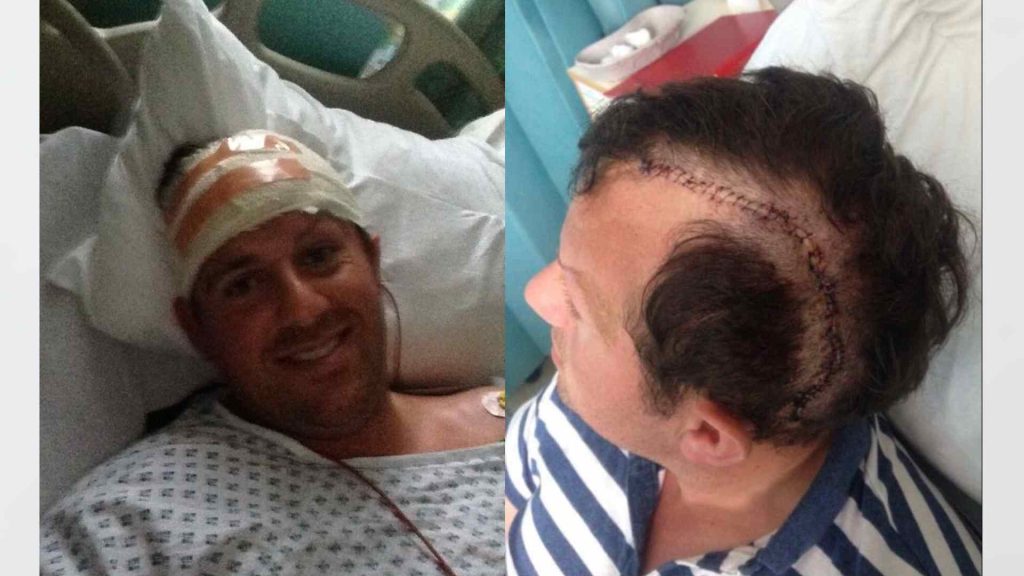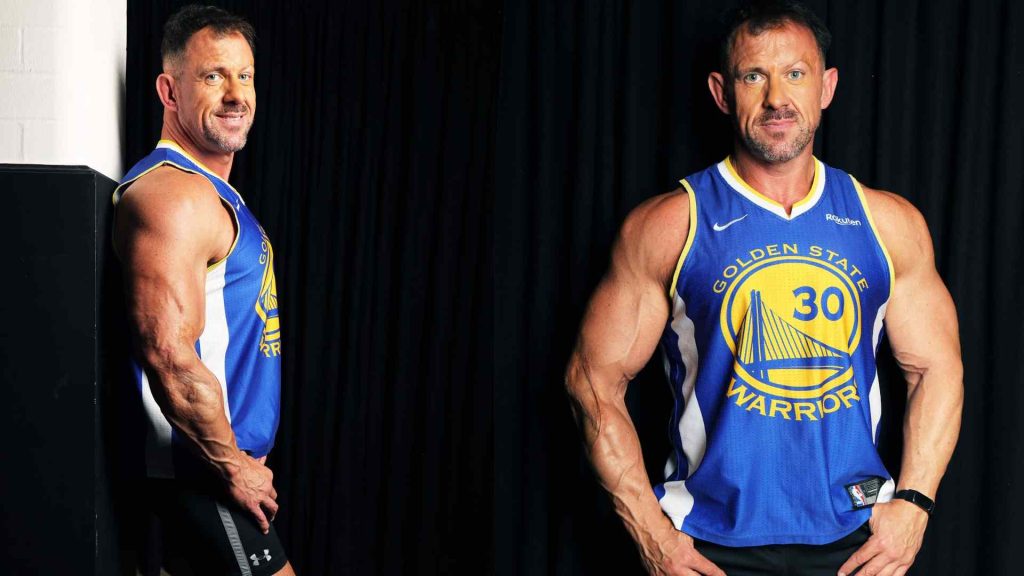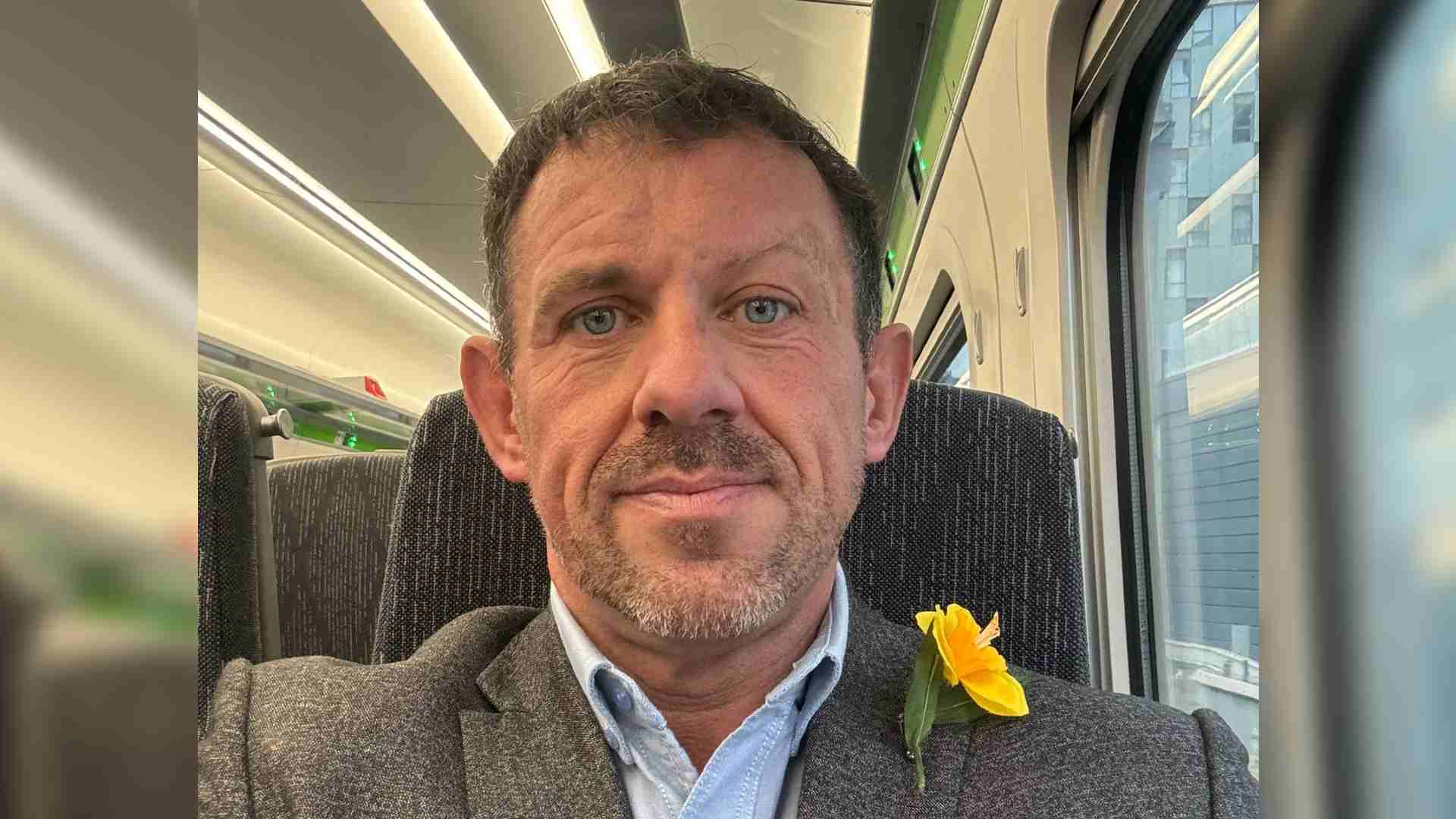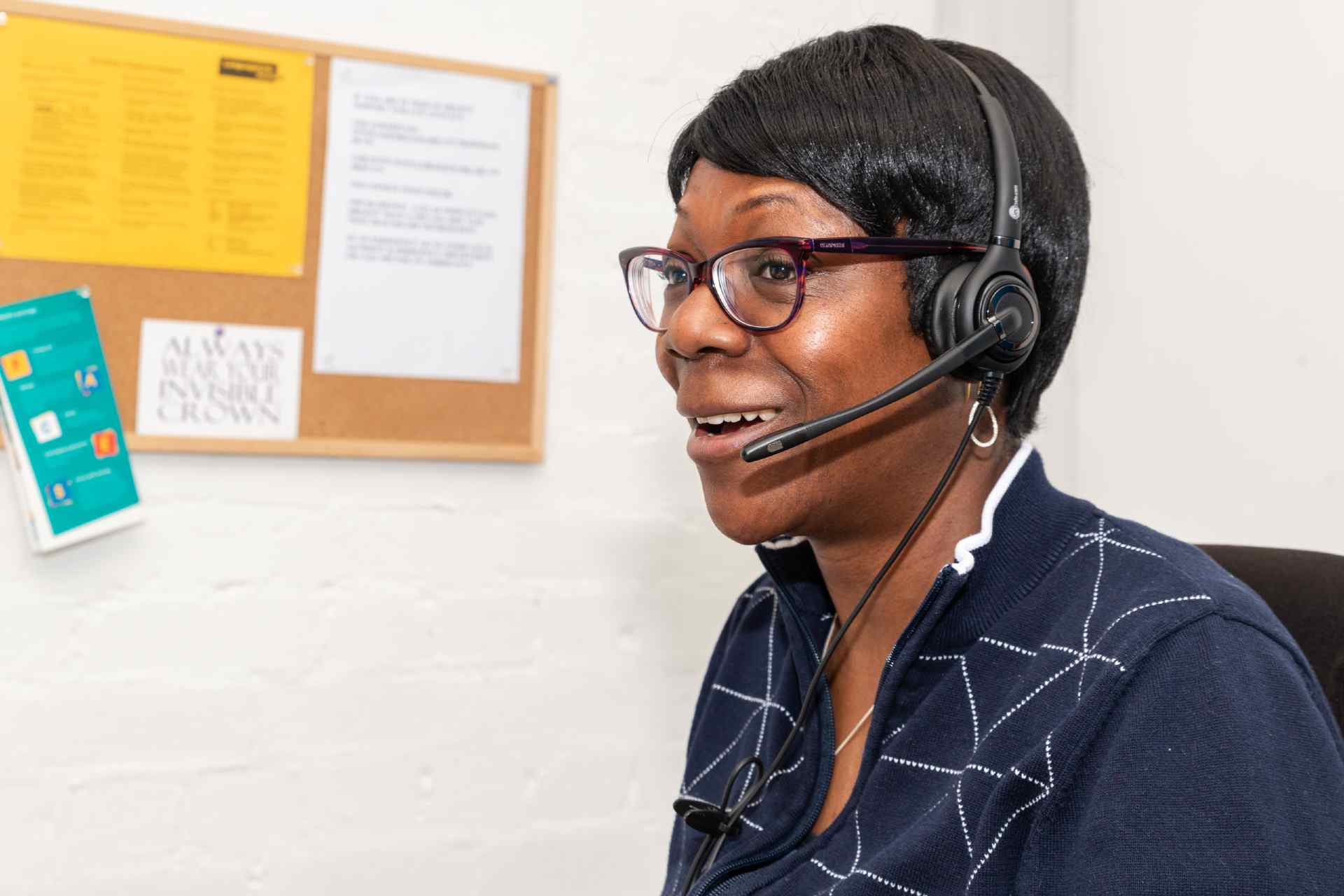I’m Andrew and over 20 years ago, I was involved in a near-fatal car crash. As a result, I had to undergo extensive surgery, which has left me with numerous scars on my head, face and body.
I experienced a massive loss of identity after the crash. I was a rugby player and had wanted to represent my country of Wales since I was very young. That was no longer possible, and it made me feel lost. I was grieving for my past self.
Agreeing to go on The Traitors was a massive step for me. While I felt mentally ready for it, I did worry about how people would perceive me.
Looking in the mirror became a struggle, as I couldn’t accept my scars. I’d say awful things to myself and spiralled into a pit of self-hatred. It was only a couple of years ago that I started being able to wear short sleeved t-shirts that showed the scars on my arm.
I hated what I saw, and I hated myself. This really upset my mother, as she could see the mental pain that I was in but didn’t know how to help. I would self-sabotage, particularly in romantic relationships, by telling myself that no one could love me and that they’d cheat on me eventually. No matter how many compliments people gave me, my insecurities told me I wasn’t worth being loved, and I’d hop from one relationship to the next. I wish I’d addressed my self-esteem issues before trying to date people, because all it did was hurt everyone involved.

Andrew post-surgery
However, in the last few years, I have made progress with regaining my confidence. I’ve worked a lot on my mental health, and I’m now in a place where I can accept my appearance. When people compliment me, I don’t bat it away with a negative comment about myself, I simply say, “thank you” and that’s a huge achievement for me.
That’s not to say I don’t still feel insecure at times. For example, a guy came up to me in the pub the other day and said, “when are you going to finish your hair cut?” in reference to the scars on my head. He meant it jokingly, but it still brought me back to that place of low self-esteem. I can’t get away from my scars, they’ll always be a part of me, and I want people to realise that and consider how what might be an innocent comment or joke to them, can have a damaging effect on others.
We’re all our own worst enemy, so don’t let the nasty voice inside your head get you down.
Agreeing to go on The Traitors was a massive step for me. While I felt mentally ready for it, I did worry about how people would perceive me. I’m a big lad and I’m covered in scars. I was concerned people might view me as a thug. However, that wasn’t the case at all. Everyone I met on the show was so kind and people outside of the show have been lovely too.
I didn’t go on The Traitors looking to become famous, I just wanted to show everyone that you can look different or experience trauma and still achieve great things in life. I want to be able to inspire others to move forward and embrace themselves for who they are.

Andrew has regained the confidence to wear short-sleeved shirts again
Helping people is what motivates me, so I’d like to set up a business that focuses on mental health and wellbeing for people who have gone through trauma. Regaining your confidence after an accident or illness can be challenging, but it’s possible and I’m proof of that.
My advice for people finding it hard to come to terms with their visible difference is to remember that at your heart, you’re still you. What you look like doesn’t matter. We’re all our own worst enemy, so don’t let the nasty voice inside your head get you down.
Learn to accept yourself as you are, because that is worth celebrating.
For 20 years, I said things to myself that I wouldn’t dream of saying to anyone else. It’s not acceptable to be cruel to yourself. It doesn’t help anyone. Trust the kind things people say about you and absorb that love until you believe it.
Social media adds an extra layer of difficulty, because it celebrates an unachievable perfection. We need to see more real people in the media, who have scars, marks and conditions that make them look “different”. Looking a certain way doesn’t define whether you’re a good or bad person. The “normal” we see on social media doesn’t exist, and you are not a freak if you don’t fit that specific mould. Learn to accept yourself as you are, because that is worth celebrating.
If you’re struggling, don’t be afraid to talk about it. There are people out there who will support you until you can love your differences.

